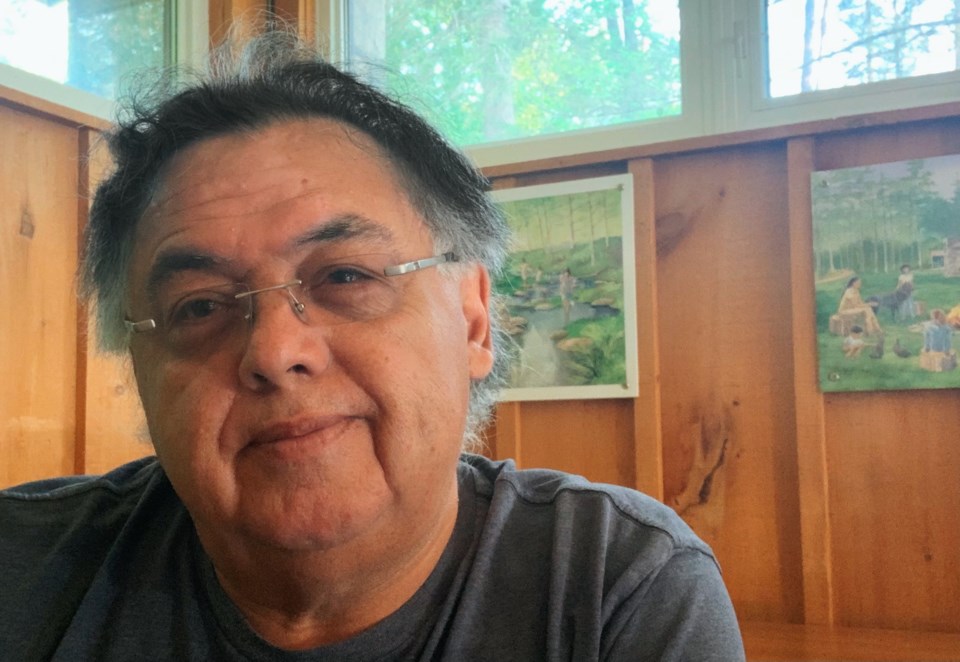I once asked an elder if the Anishinaabek (Ah-nish-in-naw-beck) took in (adopted) people from other nations. He looked at me slyly with a grin covering his face. “Take a look at the community you live in,” he said, still grinning. “The answer is right there before you.”
He then gave me this teaching:
Long ago the Anishinaabek were lowered to the earth and organized into Doodemag (Doe-dehm-ug). These were family groups now known today by their Anglicized term, clans. Originally, there were seven Doodemag and it is said that there had once been as many as 49 Doodemag.
Most of the Doodemag were named for the attributes of the spirits of the forest. They were named for animals. Some others were named for plants and trees which are considered to have a soul (spirit) like you and I.
In that world the family was more important than the individual. The individual worked for the survival and betterment of the Doodemag. Much like wolves.
Wolves live for their family groups. They know that there is strength in numbers, so wolves would even adopt wolves from outside of their pack.
Upon observing this, Anishinaabek followed the same path as the wolf and on occasion they, too, took in and adopted people from other nations.
There was an approved procedure and ceremony for this and new members to the Anishinaabek were adopted in through the Waabzeshii (Wawb-zeh-shee) Marten Clan where they would prove themselves worthy before being adopted into their forever clan.
This had been the way for thousands of years.
Then, about 200 years ago when the larger society became the dominant culture they outlawed the traditional practices of First Nations people in this region. Living as Doodemag was forbidden. The larger society drew up their own version of who was and who was not part of the Anishinaabek. They did this under legislation known as The Indian Act.
Determination of the citizenship of Indigenous people was taken away. Citizenship of a First Nation was now regulated by the Indian Act and forced upon local First Nation governments. We were not as lucky as the wolf, who remained free.
————
After that story I did look around at my community. When I did, I came to see why the elder was grinning. I smiled too.
You see, those council fires of long ago are difficult to extinguish. Despite the Indian Act, we still somehow adopt Indigenous people and even non-Indigenous people into our communities which hold the remnants of our Doodemag.
It is not uncommon for Indigenous communities to have people from other Indigenous Nations living amongst them and treated as their own. It is not uncommon for Indigenous communities to have non-Indigenous people living amongst them and treated as their own.
The ancient fires of the Doodemag smoulder under the cold gaze of the Indian Act. And every once in a while, they breathe again.
This is why I marvel at the growing phenomenon of those who would falsely claim to be Indigenous. Pretendians, as they have come to be called, are non-Indigenous people who claim Indigenous ancestry based upon one distant ancestor from two or three centuries past.
They self-identify as Indigenous usually for the purpose of obtaining employment designated for an Indigenous person. They live this lie and maintain this lie and they will fight to uphold this untruth.
But alas, self-identification is an administrative tool of the larger society who cannot be bothered to properly vet a person’s Indigeneity. That is how Pretendians get past them to play their role. That is how they get to do their damage. That is how they breach the ancient way of the Doodemag. They bypass the very people they claim to belong to.
If the hiring practices were given over and vetted by those who know their people, their Doodemag, Pretendians would be forced to try to become Anishinaabe the proper way. The old way.
We know who belongs. Just as the wolf knows who belongs.
Jeff Monague is a former Chief of the Beausoleil First Nation on Christian Island, former Treaty Research Director with the Anishnabek (Union of Ontario Indians), and veteran of the Canadian Forces. Monague, who taught the Ojibwe language with the Simcoe County District School Board and Georgian College, is currently the Superintendent of Springwater Provincial Park. His column appears every other Monday.
